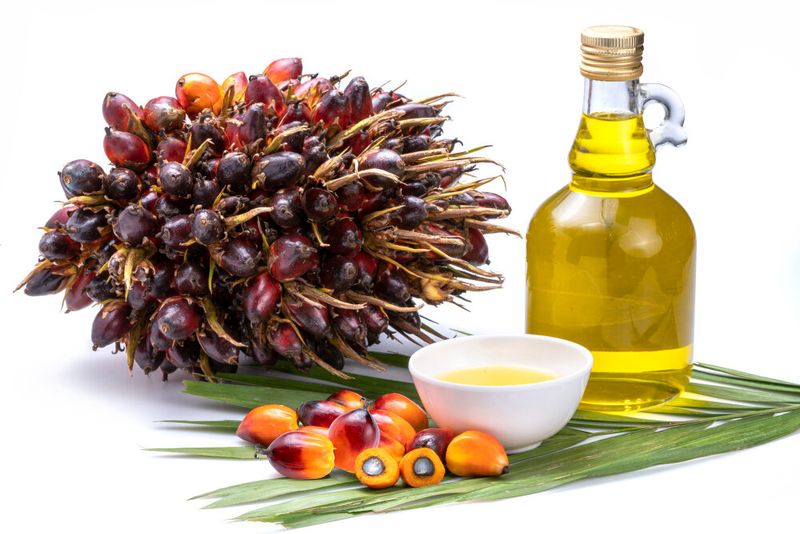DPM Fadillah promotes Malaysian palm oil in EU, keeping the trade doors open for smallholders

Deputy Prime Minister Datuk Seri Fadillah Yusof recently led a highly successful mission to meet key European Union (EU) lawmakers to seek solutions regarding the bloc’s unjust deforestation law, called the European Union Deforestation-free Regulation (EUDR), which could dampen the palm oil industry.
The mission to the EU, which was in collaboration with Indonesia under the Council of Palm Oil Producing Countries (CPOPC), was successful in getting assurance of more engagement with the EU before the EUDR, which is aimed at reducing global deforestation, comes into obligation 18 months from now.
In a race against time, it is crucial for both Malaysia and Indonesia, which produces more than 80 per cent of the global palm oil market, to push forward their ultimatums to ensure millions of smallholders are not affected and kept out of the supply chain.
Currently, smallholders, despite accounting for about 35-40 per cent of the global production of palm oil, have only a small share of the EU market.
In 2022, the EU imported about six million tonnes of palm oil. In Thailand, the third largest palm oil producer, smallholders account for more than 85 per cent.
Besides seeking the EU to accept the respective national sustainable certification schemes, both countries, also demand clarity in the law’s benchmarking system, geolocation, land legality as well as traceability that requires data that must be provided to end-customers based in the bloc.
Traceability is cited as the biggest challenge for independent smallholders to overcome.
In his engagements, Fadillah, who is also Plantation and Commodities Minister, made it clear that Malaysia fully supports any effort to reduce deforestation and has always adhered to sustainable practices in palm oil cultivation, concurrently making the Malaysian Sustainable Palm Oil (MSPO) certification compulsory.
Malaysia, at the 2021 United Nations Climate Change Conference (COP26) in Glasgow, Scotland, announced that it aspires to achieve a net-zero greenhouse gas (GHG) emission target earliest by 2050.
Malaysia also committed to maintaining at least 50 per cent forest cover as pledged during the Rio Earth Summit 1992. Currently, Malaysia’s forest cover is at 55.3 per cent.
According to Forest 500 analysis by Global Canopy, 72 per cent of palm oil companies have made a deforestation commitment, which is significantly higher as compared to other commodities such as pulp and paper (49 per cent), soy (40 per cent), beef (30 per cent) and leather (28 per cent).
However, Malaysia is against any unilateral decision, such as the one made by the EU, without taking into consideration the challenges and constraints of the producing countries, which are mostly developing countries, in meeting the requirements.
Such moves are seen as nothing more than mere obstacles put in place to protect Europe’s own vegetable oil trade and are undoubtedly concerned over stiff competition from palm oil, which has the highest yields compared with soya, corn and rapeseed oil.
This, however, is not the first time the bloc has done so.
Previously, under the EU Renewable Energy Directive III (EU RED III), palm oil was singled out as the only biofuel feedstock, according to the EU regulators, as having a high indirect land-use change (ILUC) risk, and, therefore, it will be phased-out for the purpose of being counted towards the EU’s renewable energy target by 2030.
“The daily livelihood and wellbeing of smallholders depend entirely on one thing, whether they can actually farm, harvest and take their crop to the market,” said Malaysian Palm Oil Council (MPOC) chairman, Datuk Carl Bek–Nielsen, in Brussels, Belgium.
It is to be noted that palm oil, for the longest time, has been an instrument to elevate millions in this part of the world from poverty.
When we speak about smallholders, these are people who grow palm oil as a primary source of income and often use the family as labour.
They should not only be guarded by all causes but also given the opportunity in the global market to be part of the supply chain.
“We need to ensure the little man or lady in the smallholder supply chain is not going to be at a disadvantage unfairly,” Bek–Nielsen said, adding that in essence, it is about keeping the trade doors open.
Read also
Wheat in Southern Brazil Impacted by Dry Weather and Frosts
Oilseed Industry. Leaders and Strategies in the Times of a Great Change
Black Sea & Danube Region: Oilseed and Vegoil Markets Within Ongoing Transfor...
Serbia. The drought will cause extremely high losses for farmers this year
2023/24 Safrinha Corn in Brazil 91% Harvested
Write to us
Our manager will contact you soon



